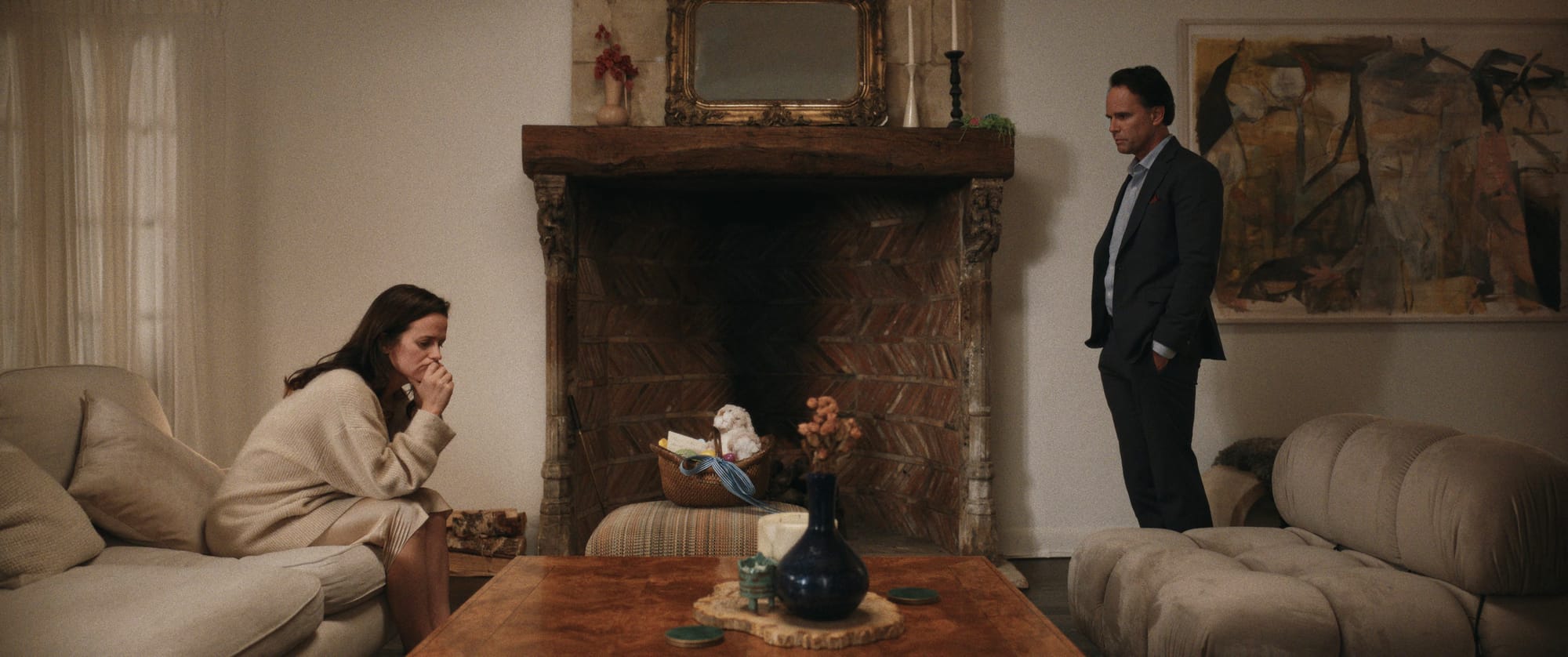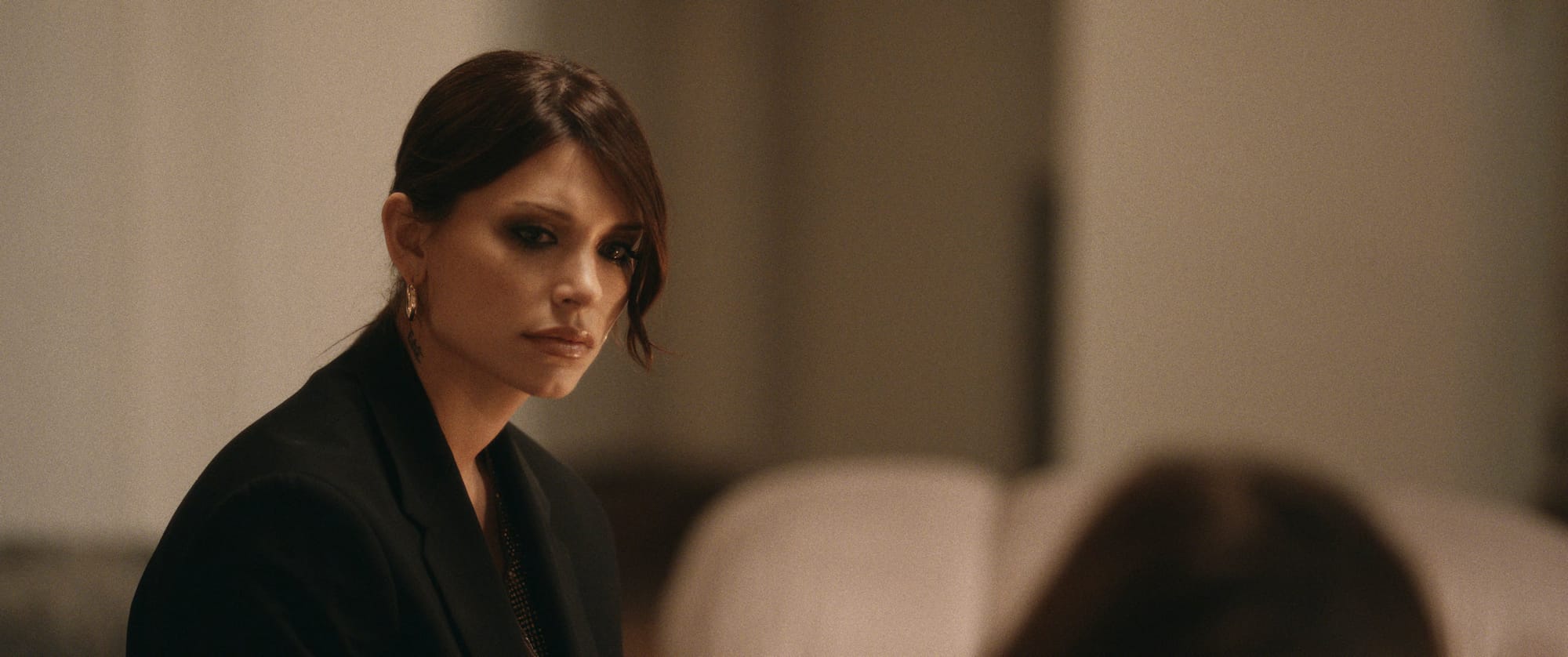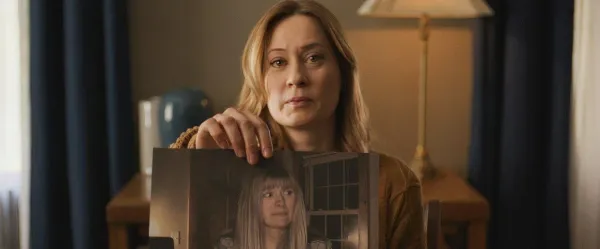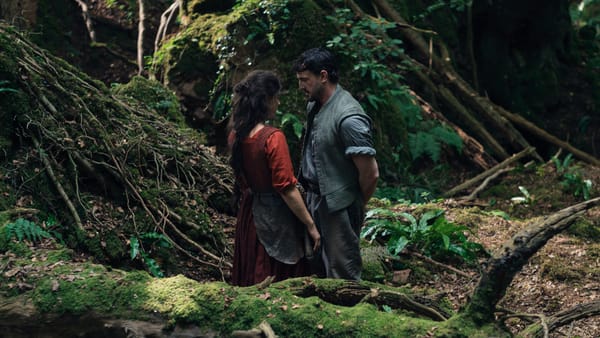‘The Uninvited’: The excruciating heartbreak of being a woman, or; I love films about magic
With effortless charm, a pitch-perfect cast, and a liberating disregard for strict spatial continuity (all the better to disorient you), Nadia Conners has conjured magic here.

NB: "The Uninvited" will be back in Odeon Cinemas in the UK from the 10th June for one day only, and available on demand from the 11th June. I can't recommend it enough, especially as a comfort film – in the theatre on date night, or snuggled up with food on the couch!
Apart from the grief that began to settle in my stomach around Act 2 (which I’ll discuss in a moment), I can’t help but mourn the fact that this film remains somewhat limited in its reach and budget, preventing it from being a genuine contender in this year’s awards circuit. It shares thematic DNA with Babygirl, Nightbitch, and The Substance; its patience and dramatic intrigue align it with Anora, I Saw the TV Glow, and Conclave; and it’s the kind of Mike Nichols-esque play adaptation that should have made a significant impact on the indie awards circuit. While I grieve this missed opportunity, I’m confident that when this film finds its intended audience, it will not be ignored. It’s destined to become a cult favorite.
With effortless charm, a pitch-perfect cast, and a liberating disregard for strict spatial continuity (all the better to disorient you), Nadia Conners has conjured magic here. The story delivers mile-a-minute laughs and immediate depth, making it perfect for a first-watch romance, while its symbolic resonance ensures it will reward multiple viewings. Conners clearly knows her story inside and out and doesn’t waste a single moment. If you know anything about my tastes—which, by now, I hope you do—you can tell I’m utterly smitten.
My favorite aspect of the visual and technical elements was the use of slow focus pulls. I’m not sure if it was shot on film or employed an emulation, but the effect made the story feel timeless—as if you’re already watching a remaster of a beloved, critically acclaimed late-’90s classic. What a gift.
Elizabeth Reaser is the glue, the spark, and the glittering dance that holds every moving part together. She deftly guides Rose through the journey of hosting a party she never wanted to throw, radiating an inviting presence on-screen. Reaser’s Rose is a beautifully complex agent of her own hero’s journey, as deconstructed as such a concept can be.

If anyone is living out their own hero’s tragedy, it’s Walton Goggins’ Sammy, who sinks to new depths with each passing hour of the party. Every effort he makes is met with resistance and futility. By the film’s end, he is granted a catharsis that complements Rose’s own. Conners skillfully avoids letting Sammy overshadow Rose’s storyline; instead, Sammy serves as a framing device for Rose as she ascends the trellis.
But, of course, we have to talk about Pedro Pascal again because he did the thing again (who’s going to stop this guy? Actually, no one should stop him. We need him. Cinema needs him). Here, he tackles a tricky role—a seemingly obvious villain/antagonist who appears determined to disrupt everyone’s goals. He has a mission, and if anyone else had played this character, I’d have despised him with such intensity that I’d consider the actor a genuine, real-world threat. Thankfully, it’s Pedro, whom I’d forgive for anything. He infuses Lucien with such soft innocence that it’s hard to believe he could be such a scoundrel. Aren’t those the worst kind of scoundrels, though? The ones who can so easily get away with it? When all is revealed—nothing catastrophic, I promise, but you will want to hit him—it becomes clear that we, like the characters in his life, have been equally spellbound and affected by him.

Finally, there’s Lois Smith’s Helen, who provides the film’s contrast and its heavy dose of grief. She is the future, the past, and outside of time altogether. She holds up mirrors for everyone to examine their futures, their pasts, and their present moments. Her performance delivers the heartbreak, and it’s nothing short of a masterclass.
The film presents itself as magical realism, and if you believe in such things, the entire party can be seen as a kind of magic. Cinema is magic, after all, offering us the same perspective that the story gives Rose. Yet, Conners wisely provides real-world answers to the questions the film raises, allowing you to leave with the full weight of its message. This is real life—and what you do with it matters. What you acknowledge will be addressed; what you neglect will resurface.
With this film—astonishingly her Narrative feature directorial debut—Nadia Conners has joined the ranks of the great filmmakers of her generation. I will belligerently champion her talent until everyone else does too.





